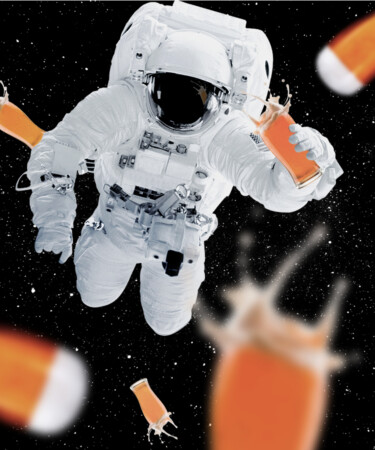Enjoying an ice-cold beer is one of life’s simplest pleasures, and after a long, stressful day, there’s hardly anything that sounds better than cracking one open. It’s challenging to think of many jobs more stressful than that of an astronaut, especially those aboard the International Space Station (ISS). From operating in zero-gravity conditions to managing a near-constant onslaught of danger due to the unpredictable nature of space, being an astronaut is hard.
Unfortunately, the individuals who choose to brave the unknown have to wait until both of their feet touch back down on solid ground to unwind with a beer, as drinking the beverage in space is impossible. Truly, scientifically impossible.
Carbonation is an essential fixture of a good brew, and there’s nothing more satisfying than sipping a pint with a perfect head. On Earth, this is only possible because gravity remains stable; therefore, as carbon dioxide gas — which forms these beautiful bubbles — is lighter than the surrounding liquid, it floats to the top. In the zero-gravity conditions of outer space, all bets are off when it comes to containing the fizz.
According to NASA Scientists, “In a weightless environment, bubbles of carbon dioxide (‘carbonation’) aren’t buoyant, so they remain randomly distributed in the fluid. Because bubbles don’t rise in free-fall, the result can be a foamy mess.” The problem doesn’t stop there, though. As it turns out, the weightlessness that causes the bubbles to go every which way actually remains an issue once the beverage is swallowed.
When operating in microgravity conditions, carbonated bubbles can’t rush to the top of the beverage. Instead, they’ll stay within the liquid, causing any astronaut who dares try a bubbly beverage to consume significantly more gas than they would on their home planet. NASA notes that these gas bubbles then “go through an astronaut’s digestive system, rather than being belched out as on Earth, and may cause adverse side effects.” Just as gas bubbles don’t rise in a beer in space, they certainly don’t rise in the human body the same way they do on Earth, meaning if an astronaut can manage to burp at all — which would be incredibly challenging — it won’t be air that they’ll be expelling. Instead, each “burp” is going to be painful and will expel fluids, thanks to severe acid reflux.
Homesickness can be challenging, and some astronauts may crave the familiar comfort of their favorite brew from back on their Earth. Unfortunately for them, even if drinking a beer in space wasn’t wildly unpredictable, astronauts are forbidden from consuming alcohol while in the thermosphere and have been since the 1970s. So, until scientists can find a way to force rogue carbonation to behave in an otherwise incredibly uncertain environment — and until NASA adjusts its rulebook — brewskies will have to remain down here on Earth.
